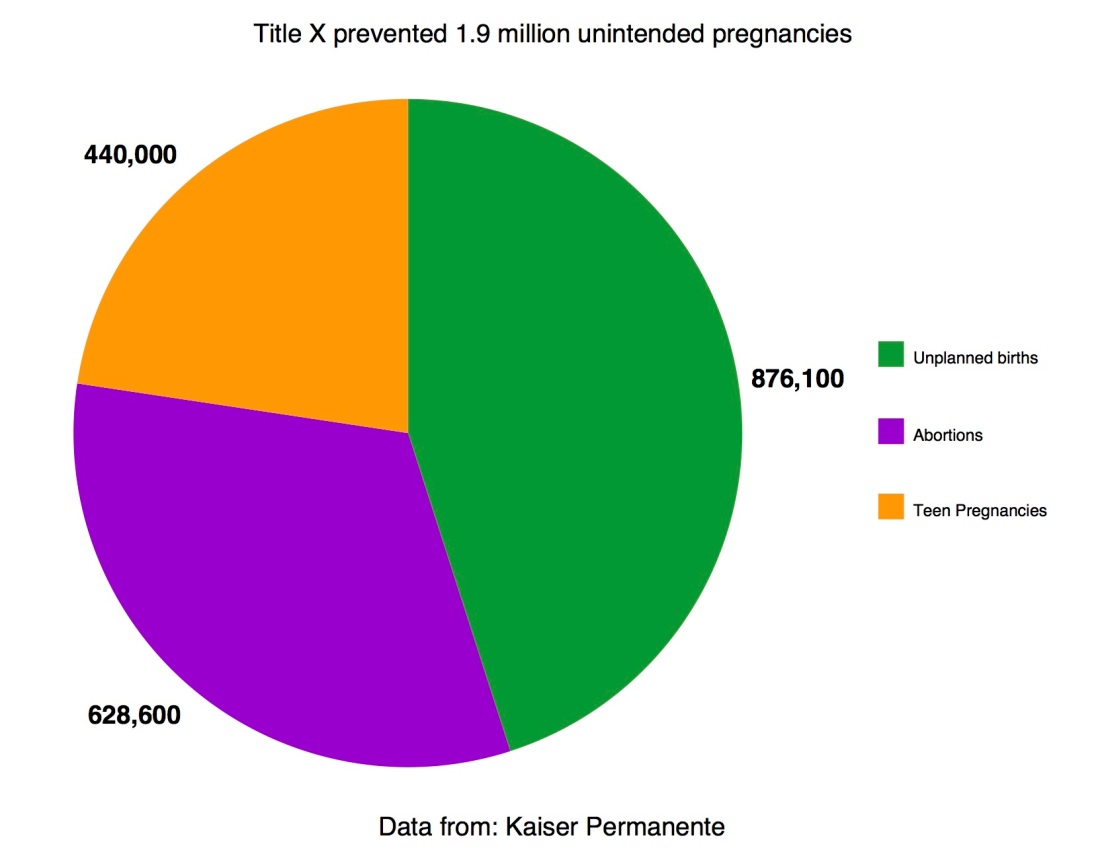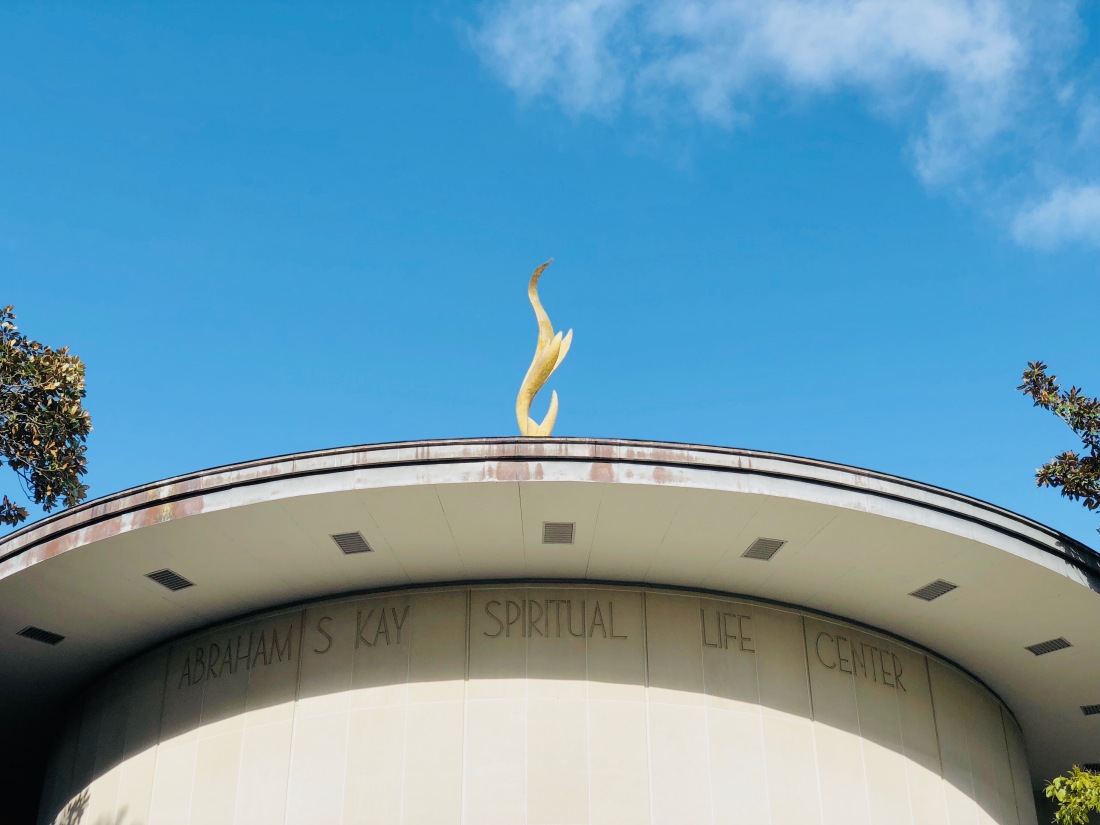Changes to Title X make it easier for employers to claim religious exemptions
By: Jessica Joy De Jesus
The Trump Administration is rolling back a federal mandate under the Affordable Care Act (ACA) that requires employers to provide contraceptives and other family planning services through their provided health insurance.
The new regulations target Title X — the only federal program dedicated to providing family planning methods.
There are currently over four million Americans who benefit from Title X funding, according to the Health and Human Services Office of Population Affairs (OPA). Low-income people are given priority in receiving Title X funding, and they are the majority of the beneficiaries.
Carol Moore-Whitney is a lactation consultant in Northern Vermont. She is a single mom with two daughters in college who both use contraceptives provided by Whitney’s insurance. “I can’t even imagine how my daughters would get contraceptives without my insurance, let alone afford it on my own.”
This issue not only affects the employee but families who rely on family planning care for their children or other family members under their insurance plan.
Under the new Title X, employers can now deny their employees contraceptive care on religious grounds. The right to deny contraceptive care on the grounds of religion was upheld in the 2012 Supreme Court decision Burwell v. Hobby Lobby Stores, Inc. The Court ruled that forcing employers to provide such care was a violation of the Religious Freedom Restoration Act.
But in 2016, the Obama administration, through the ACA, claimed that only organizations that constitute as a “house of worship” are automatically exempt from these requirements. The ACA permits religious non-profits to apply for an “accommodation” which would allow the employer to opt out of paying for contraception, leaving it up to the insurer to shoulder the cost.
Now, the White House is scrapping the requirement of being a “house of worship,” and allowing employers to freely deny contraceptive care.
These changes are a double win for the Trump administration – it satisfies the more conservative parts of their base and slices funds from Planned Parenthood and other clinics who provide abortion services.
The new statute states that no federal funds “shall be used in programs where abortion is a method of family planning.” Title X funds over 4,000 clinics nationwide, and Planned Parenthood treats 41 percent of Title X patients. Under these new laws, all Planned Parenthood clinics will not qualify to provide care because Planned Parenthood offers abortion services.
According to a study by Kaiser Permanente, 40 percent of women who obtained publicly funded contraceptives received their contraception from Planned Parenthood. Without Title X funding, clinics like Planned Parenthood will not be covered by some employee’s health insurance. This poses a difficult issue for many women who live in rural areas or areas where the nearest clinic is a Planned Parenthood. Women will have to travel farther and pay more for basic birth control.
Title X beneficiaries receive not only contraception, but also Pap tests, cervical cancer tests, breast examinations, and STD tests. Family planning counseling is also provided, and it’s often the first step that women go through when considering their reproductive health.
Jocelyn Sayson was a genetic counselor at the Genetics Institute in Los Angeles, California. From a healthcare provider’s perspective, Sayson says: “This is an infringement of the rights of the family. Not just the pregnant woman, but even the family. This should have nothing to do with religious beliefs.”
Sayson noted that she often counseled women over the age of 35 whose pregnancies are more susceptible to complications both for the child and the mother. Silencing the option for women, particularly low income women, to terminate a pregnancy can be fatal. “It [Genetic counseling] prepares women. And it is her decision,” says Sayson. “But you have to give her all avenues first.”
A third of the women who receive care through Title X are over the age of 30, according to the 2017 Title X Family Planning Annual Report.
The annual report also notes that 4 million people had a “family planning encounter” in 2017. A family planning encounter is “face-to-face interaction between an individual and a family planning provider that includes the delivery of family planning services to avoid unintended pregnancies or achieve intended pregnancies.”
According to the Office of Disease Prevention and Health Promotion, almost half of all pregnancies in the United States are unintended. However, publicly funded family planning services prevent 1.9 million unintended pregnancies, including 440,000 teen pregnancies.

Dr. Susanna Santiago-Soriano is a pediatrician who often deals with unintended teen pregnancies. She gives her patients two avenues: “I advise them to see an obstetrics if the patient wants to keep the baby, or to Planned Parenthood if she desires the opposite. As far as I know, young patients often choose the latter.”
Like Sayson does with pregnant women who are older, the option of terminating a pregnancy is still given to younger women who have unintended pregnancies, Planned Parenthood being the main path for women to go through with that option.
Dr. Mishka Terplan is a Professor of Obstetrics and Gynecology at Virginia Commonwealth University and his career has focused on the intersections of reproductive and behavioral health. In 2016 he worked with the Baltimore Reproductive Health Initiative and created a mobile clinic that provided women struggling with addiction to get family planning options like contraceptives. “Title ten was the only way we could have done this,” said Dr. Terplan.
Dr. Terplan says that rolling back these regulations “speaks to an even greater need for title ten services.” He adds that the changes are “an unethical piece of policy that is wrapping itself as an ethical piece of policy. That the provider has the right to not provide services, and that the system has an ethical duty to not provide care that they are not parsimonious with.”
Georgetown University and the Catholic University of American are granted religious accommodations under the ACA that allows them to legally deny employees and students contraceptive care. On college campuses, this is especially harmful to the students who need contraception, but cannot afford it outside of their college health insurance plan. Both Georgetown and Catholic do not provide any form of contraception on campus grounds.
However, at Georgetown, students can attempt to obtain a birth control prescription from a doctor on campus but for “non-contraceptive reasons.” Talia Parker, Director of Organization for H*yas for Choice, explains how students can do this: “You go in, and you say, I have really heavy bleeding and it’s painful and I can’t go to class … we’ve heard different stories depending on different doctors you go to. Some doctors will try and lead students to that so they can help them in any way that they can others will not.” The student will also have to prove that it is not for sexual activity.
H*yas for Choice is an unrecognized organization at Georgetown University that provides free condoms, dental dams, and other forms of contraception on campus. The organization must use an asterisk in “H*yas” because they are not legally allowed to affiliate themselves with their university. Parker says that although the university technically does not support their organization, she says that “in general the administration lets us do what we do because they know that we are providing a really important service that college students need.”
H*yas for Choice pass out over 10,000 condoms each semester and they recently began distributing Plan B, the emergency contraceptive. Since September, they have passed out almost one a day. “We had no idea the demand will be that high,” said Parker.
Raymond Brantley is the Employee Benefits Manager at the Catholic University of America and although he handles both student and employee health insurance, he does not know the rate of students and employees who need contraceptive care: “even though we contract it [health insurance] for them, that is their own private plan that they pay for.” CUA does not have an organization like H*yas for Choice, and the contraceptive needs of their students are unknown because CUA does not “provide any reproductive assistance” according to Brantley.
Parker says that she believes Georgetown factually and administration adhere to the schools’ religious background, but their “hands are tied” to the church.
The Roman Catholic Archdiocese of Washington, and the United States Conference of Catholic Bishops declined to comment on this story.
Audio Story link: https://soundcloud.com/jessicadejesus/title-x-audio-story/s-uPMR1


